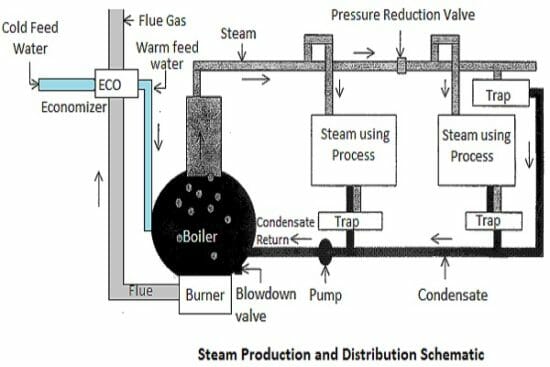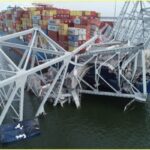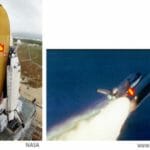- Course No E – 1864
- PDH Units: 6
No data found for Custom Course Number
No data found for Custom Course Units
- Course No E – 1864
- PDH Units: 6
Intended Audience: HVAC & Mechanical Engineers.
PDH UNITS: 6
Steam is in heavy demand in industries requiring heating processes, and it is typically an energy-intensive process to generate it. Optimizing the steam distribution system can focus on many different areas and the boiler plant is just a step in the process but not the whole process. Every part of the steam system including steam distribution and the end-use process should perform at the highest efficiency to keep the operating costs to the minimum. The savings potential is enormous: not only from a fiscal standpoint but also from an environmental standpoint. This course will review the basics of steam systems and provides a comprehensive technical overview of energy efficiency measures in steam generation, distribution, and use. The course has been developed to benefit decision-makers, process engineers, energy managers, procurement staff, operators, maintenance staff, and all the industry professionals involved in the design and operation of steam systems. It is not intended to be a thorough technical guide. References for more detailed technical information is provided.
Learning Objectives:
At the successful conclusion of this course, you will learn the following knowledge and skills:- Why steam use is efficient heating media
- Key components of industrial steam generation, distribution, and use
- Understand principles of perfect combustion, excess air, and the air-fuel ratio.
- Identification of typical energy losses of boiler/ steam system in your facilities
- Low-cost practical strategies to improve the energy efficiency of boiler/steam system
- Measures to reduce stack losses
- Measures to reduce blowdown losses
- Measures to improve the distribution side of the steam system
- Measures to improve steam end-use efficiency
Once completed, your order and certificate of completion will be available in your profile when you’re logged in to the site.
Ethics Courses

E – 3019 Engineering Ethics: Ship and Bridge Collision; Ethics Violation Caused Six Deathsby Dr. Abolhassan Astaneh-Asl, Professor Emeritus. Ph.D., PE

E – 1865 Engineering Ethics: The Cases of Challenger and Columbia Shuttle Disasters; “Hold Safety Paramount” to Prevent Loss of Lifeby Dr. Abolhassan Astaneh-Asl, Professor Emeritus. Ph.D., PE










